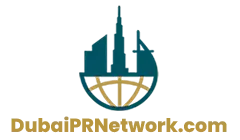|
Constructive space cooperation between both nations culminates in region’s first project to explore gamma-ray flashes
Abu Dhabi, December 19, 2021: The joint UAE-Bahraini nanosatellite Light-1 will be launched to the International Space Station on 21 December 2021. It represents a major milestone of cooperation in space science, technology and engineering between the UAE and Bahrain.
Light-1 will take off onboard a SpaceX CRS-24 flight on board of a Falcon 9 rocket after undergoing rigorous safety and environmental tests for thermal and vibration, communication systems and more. Light-1 then will get deployed from the Japanese Experiment Module (KIBO) in the ISS into orbit under supervision from the Japanese Aerospace Space Agency (JAXA).
The nanosatellite was built and designed in collaboration between the UAE Space Agency and Bahrain's National Space Science Agency (NSSA), the project was executed at Khalifa University and New York University Abu Dhabi. It is a testament to the bilateral ties between the Kingdom of Bahrain and the UAE, underscoring the social, economic and scientific cooperation between both countries in priority industries, including space.
Light-1 is a nanosatellite, but it is no different from other larger satellites in terms of the technology or technical expertise required to build or launch it. It is also a cube satellite that consists of three units and is often referred to as a 3U CubeSat.
Light-1’s name was inspired by HM King Hamad bin Isa Al Khalifa, King of Bahrain’s book, The First Light. It recounts key points in Bahrain's history and the name symbolizes the country’s growth and scientific progress.
The research spacecraft was developed by leading Bahraini and Emirati engineers and scientists working from labs in the UAE. The team is made up of 23 students, including nine Bahrainis and 14 Emiratis from Khalifa University and NYU Abu Dhabi.
After reaching its orbit around Earth, Light-1 will monitor and study terrestrial gamma ray flashes (TGRs) from thunderstorms and cumulus clouds. TRG analysis is an emerging field of geoscientific research which the mission will contribute to at an international level. It will be the first study of its kinds in the region. New York University will be leading the science data analysis aspect for this mission.
In addition to the joint Light-1 satellite, the Khalifa University of Science and Technology in Abu Dhabi supports the capacity building of NSSA staff by including them in key projects. This has helped train and upskill talent in space field.
The strong and mutually-beneficial partnership between the UAE Space Agency and NSSA will also see the UAE Space Agency participate in the Bahrain International Airshow 2022. In which an agreement was signed by Her Excellency Sarah bint Yousef Al Amiri, UAE Minister of State for Advanced Technology and Chairwoman of the UAE Space Agency, and His Excellency Eng. Kamal bin Ahmed Mohammed, Minister of Transportation and Telecommunications and Chairman of the NSSA at the Dubai Airshow 2021.
Dubai Airshow 2021 witnessed significant Bahraini participation. Bahrain is also a member of the Arab Space Cooperation Group, an initiative adopted to promote cooperation on space among Arab countries. It has 14 member states and is headquartered in Abu Dhabi.
| 
